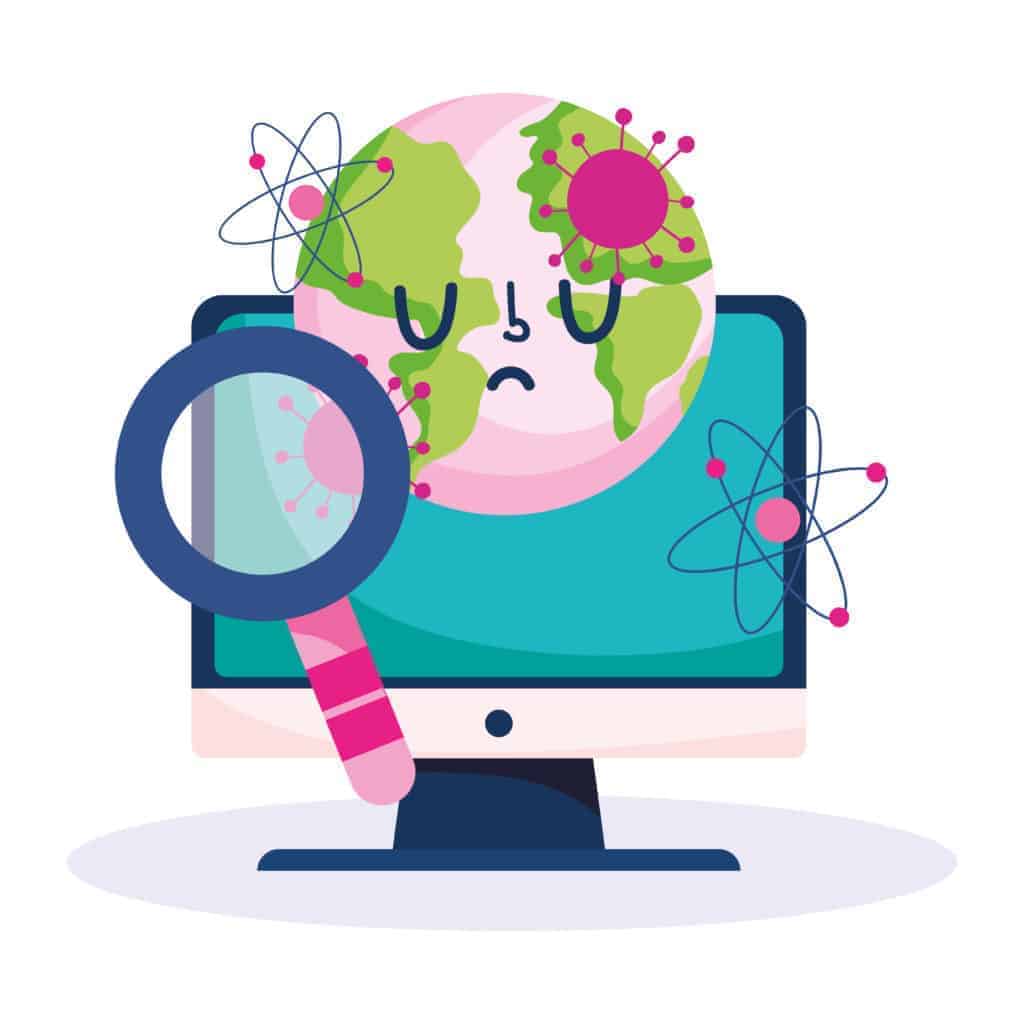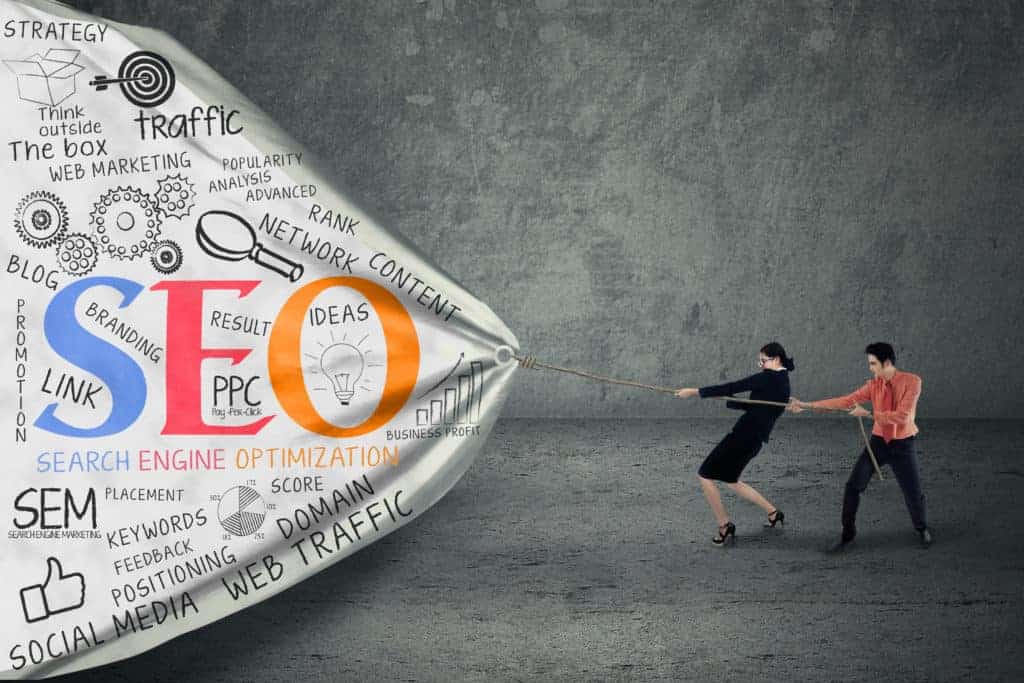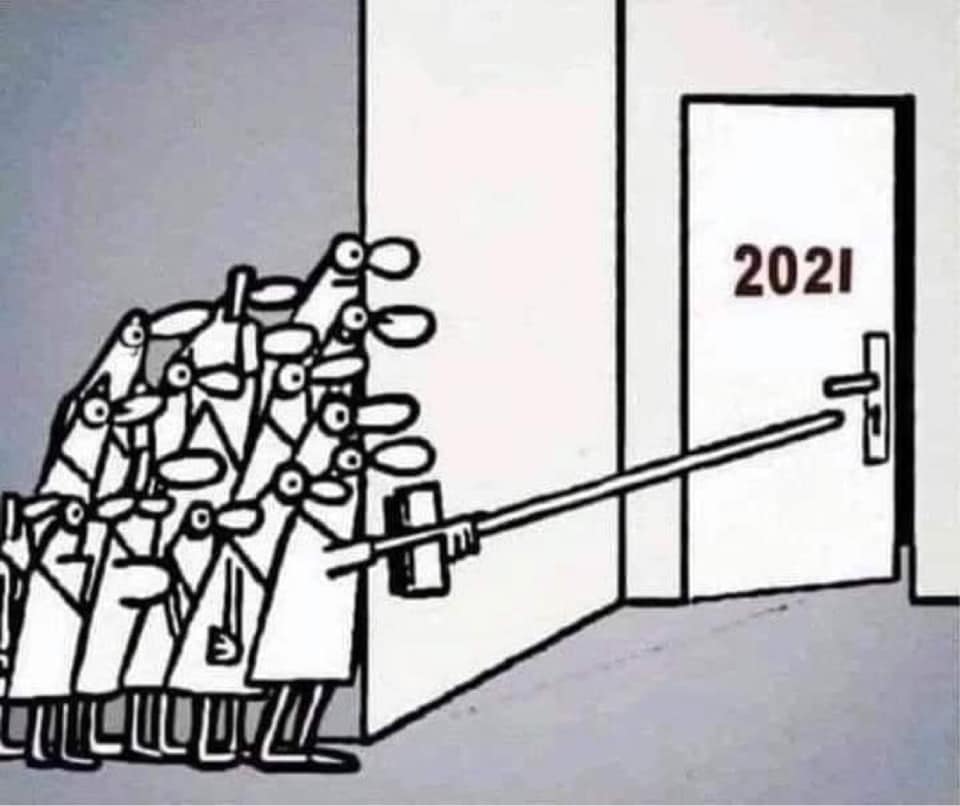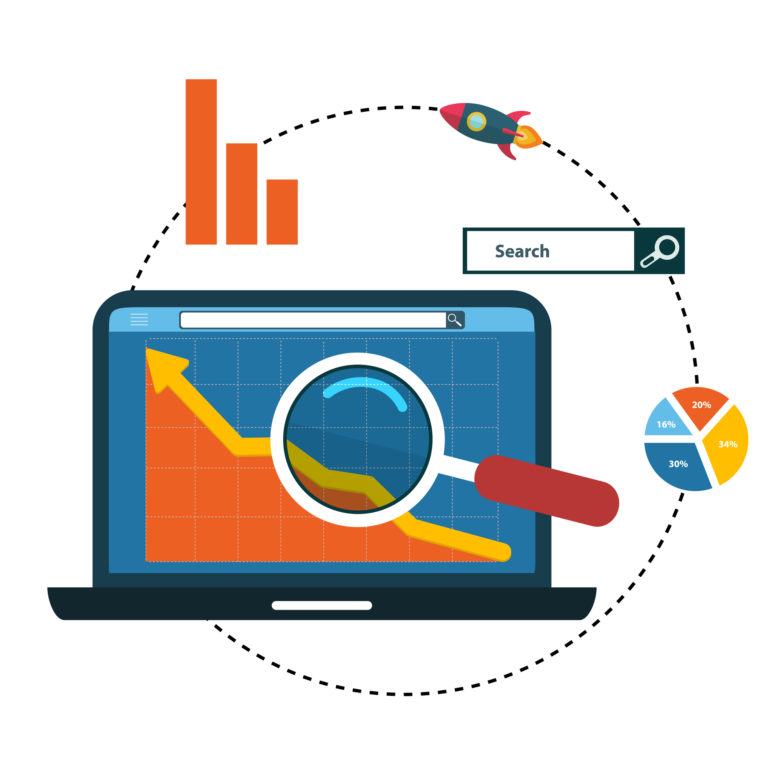 Congratulations on surviving! As any twelve-month stretch goes, 2020 has served us a never-ending smorgasbord of unadulterated dung. Viewed as vintage wine, this year would be acidic enough to dissolve even Gwyneth Paltrow’s unwarranted smug aurora.
Congratulations on surviving! As any twelve-month stretch goes, 2020 has served us a never-ending smorgasbord of unadulterated dung. Viewed as vintage wine, this year would be acidic enough to dissolve even Gwyneth Paltrow’s unwarranted smug aurora.
From COVID-sponsored fatality rates to ludicrous election mayhem and California largely being on fire, 2020 will be remembered with the same affection reserved for the Star Wars Holiday Special. Look it up.
The same applies within the world of Search Engine Optimization (SEO). Courtesy of Google’s record number of glitches, algorithm updates, U-turns, and the general pandemonium around online behaviour due to Coronavirus, the SEO world has been suffering a demonic spin cycle for months.
So, put down the syringe of bleach and join us for a retrospective look at some of the reasons why 2020 has changed SEO and the way audiences behave online. Probably forever.
COVID Changed the SEO 2020 Search Pattern

Whenever something goes wrong, or a new threat materialises, the modern natural impulse is to Google it. By gathering information, we feel as though we have some form of control. We seek reassurance and confirmation about a situation. And, when COVID-19 brought the world to a standstill back in March, this is exactly how most of the population behaved.
Naturally, throughout 2020, search traffic skewed towards a Corona-heavy result. As life hasn’t quite returned to normal, the search traffic is still very COVID heavy. Searching for COVID terms has become the new normal, with Google rolling out Core Updates (more on them later) to address how SEO audiences are now searching for information online. Search patterns changed and Google responded.
Classic search terms, such as sports and news, were drowned out by a rapid increase in panic browsing for information about the new pandemic. As time has brought us many months down the line, people aren’t so much digging for info on COVID-19 itself anymore, but rather searching for advice.
People are asking ‘what’ and ‘how’, and checking to see what local services they can find instead of travelling to other areas. They are also looking for places that take the COVID threat seriously and are ‘COVID Compliant’ in providing protection for both staff and customers.
Audiences turned towards searching for health and prevention advice, qualified medical information, ‘at home’ and ‘near me’ experiences, and away from travel and hotel searches. Due to the impact the pandemic made on jobs and financial security, people were also searching for economic and business news rather than their usual leisure results. Everything was turned on its head.
As such, Google’s search algorithms had to adjust and adapt to the unprecedented levels of new questions. More on that in a bit, but it’s unlikely our search patterns will return to how they were before the pandemic. Welcome to the new world! It’s scary and we don’t like it.
Local Search Increased

It’s no secret. During the pandemic, local search saw a huge jump in audience numbers. As a result, you were rewarded if you had well-linked pages that built trust about your services and location.
Trust, you say? Well, Google prefers to display results that are correct, comprehensive, and professional. After all, Google’s main aim has always been to offer information for the user to make educated decisions with. It’s not all about promoting content from those who try to ‘game’ SEO.
When searching for a professional service – such as physical therapy – Google is programmed to scan for other trust sources. Local directories and service listings always make a difference here. Not got your listings sorted with matching location and contact information? Yikes. Get it done! If you don’t know how to, then reach out and we’ll help you.
As people hunkered down and remained in their local areas during the pandemic, searches for businesses and services ‘near me’ saw record numbers. Having content on your site that highlights exactly where you are, and what areas your company offers services, has never been so well utilized. These pages are a prime trust source for the Google bots.
Another big trust factor is perhaps a rather obvious one. Reviews! Yup, good old-fashioned reviews remain Google’s go-to trust platform. The more you have arriving in a timely fashion, the more Google is going to trust your business. So long as they aren’t all one star, of course. You can read more about the importance of reviews (←) by following the link.
As a secret weapon for extra SEO points, remember to reply to all of your reviews. Google trusts those who take the time to reply to their customers. You can thank us later. Or send us peanut butter. Up to you.
Location pages and landing pages per area also played a big part during 2020, and that won’t change for 2021. Stating your business address and service area has always been important, but having that information correct across all channels and keeping your Google My Business account active is now one of the most important factors for creating that return on online investment.
Your Money, Your Life: More Important Than Ever

As already mentioned, Google has focused hard on making sure ‘Your Money, Your Life’ (YMYL) search results are trustworthy. This includes all healthcare, such as physical therapy.
While this is great news in one way (because if you are a legitimate business with nothing to hide, then you are already quids in), it does mean that your web presence must be 100% compliant and ultimately perfect.
When Google brought their B.E.R.T Update to the party last year, the search algorithms began to understand the quality of written content. What does that mean? Well, quality is now recognised over quantity.
If your content doesn’t provide substantial value when compared to others, is full of factual errors, badly written, not focused on a key term, presents itself with a lack of trust, doesn’t link to other pages, or provide original information, then you can kiss goodbye to high ranking results. Our previous blog on the importance of online content can help shed some light on this matter.
Changes in SEO 2020 Content Acceptability

Over 2020, landing pages and blogs that are thin on content have been further demoted in favour of longer articles and pillar pages. If you have tried to utilize duplicate content or scraped content from another source, alongside auto-generated content and affiliate pages, then SEO penalties have also been applied. The reason? Google is all for original, trustworthy content. End of debate.
Although we are sure none of our clients are up to such trivial nonsense, if you are happily spreading misinformation or not fact checking your content (which can happen if you copy someone else’s content – you have been warned), the Google police will administer strict punishment. And not the enjoyable leather kind, either.
Google has actually stated that they will always fight ‘disinformation’ and ’where possible and relevant, elevate authoritative content from trusted sources’.
Then we come to blogging. Google has certainly cracked down on quality over quantity with preference given to those who adhere to the recommended guidelines. You can read about all of this in our previous blog post on the importance of good and timely content.
Google and Its Increasingly Paranoid Algorithms

Let’s get one thing clear right from the off. The search engine algorithms change on a near daily basis. Last time we checked, Google announced no less than 3200 changes to their ‘search systems’ over a 12 month period.
The majority of these changes don’t bring a significant impact on a website’s organic search performance, but what does cause a measurable jolt is something altogether more terrifying. The intense, and often unannounced, Core Algorithm Updates *thunder clap*.
These beasts are a direct result of Google’s efforts to improve the accuracy and trustworthiness of search results. Studying the pattern of updates, Google can roll these out as often as four times a year. Yet, while these bring deep-rooted change, the core fundamentals of SEO remain the same. What are the core fundamentals, I don’t hear you ask? Let me explain:
♠ All websites developed by DPRT ensure an efficiently accessible site that’s responsive across all screens, mated to a solid user experience with clear, concise content that highlights authority and credibility in the PT market. ♠
And I’m not just saying that because Flemming is currently holding me at gunpoint (send help). These aspects create the foundation for each and every SEO campaign, and DRPT takes this very seriously.
What a core algorithm update signals is a revamp in the way Google displays results. What ensured good ranking results pre-update is sometimes wiped clean away, with existing ranking factors weighted against one another. Certain factors suddenly boost results like a nitrous injection, whereas others become increasingly irrelevant or even ‘illegal’; bringing penalties for following outdated practices.
For those in the healthcare sector, each update hits the results pages with considerable force. Medical and official information is viewed as ‘Your Money, Your Life’ (YMYL), and Google has been attempting to filter out all but the most trustworthy content for YMYL results (as mentioned earlier in this article).
After all, if you end up dead because of malpractice at the hands of someone pretending to be a doctor, or you find yourself in an ice bath minus both kidneys, then Google is the company that sent you there. And that will hurt the Google shareholders where it hurts – their bank account.

Sadly, what that means is – as physical therapy falls under the healthcare sector – rankings take a substantial hit with every core algorithm update. And as Google has rolled one out four times this year (the last one was on December 3rd), there have been various migraines brought on by what comes with Google testing these updates in the first place – glitches (see below).
Now that you understand the impact of a Google Core Algorithm Update, and grasp the change in search patterns due to COVID-19, you can hopefully see why Google had to adapt with relevant updates – and why we had to follow their new guidelines amid all the pandemic fear.
The search terminologies and updates will stay along these lines for the future, or for as long as COVID-19 remains a part of our lives; which is indefinable at present.
Ghosts In The SEO system – Google Style!

With all these updates, it was only natural that Google was going to suffer a few glitches. However, they came thick and fast during 2020. Some were less noticeable than others, whereas others created cartoon-levels of mayhem.
Arguably, the biggest Google slip up landed back in September. On September 29, an indexing bug hit the SERPs pages like a coked-up wrecking ball. Rankings fluctuated in the style of Stormy Daniels’ bank account and pages dropped out of Google’s index; despite these pages being legitimate and SEOed to the hilt.
During this time, undertaking a Google search produced some weird results. Businesses SEOed for their home location (say Knoxville, TN) suddenly ranked for other areas of the country due to Google’s internal problems. Some even ranked for territories abroad. We had at least one case of an American PT clinic ranking for places in Australia and Africa.
Naturally, this pummeled the bounce rate just in time for Google to then have another indexing and canonicalization bug on October 12th. This time around, the subject matter went mad. The documented example shared with us all concerned food recipes.
If you searched for baked bean recipes, you were presented with lobster. If you searched for chicken burgers, you were presented with kale. In the real world, this meant that searchers wouldn’t be able to find your business. Searching for Physical Therapy produced articles on learning to swim. And so on.
Luckily, a fix was installed within a couple of days, but not before the ranking results suffered. We could forgive this, if it wasn’t the 5th time that such an experience had been caused by Google this year. But, hey, it comes with the territory, right? Sadly so. Pass the Valium.
And there we have it. I think you’ve been subjected to SEO information overload – which is basically my rant to vent the disgruntlement that 2020 has slung our way. For that, I apologise. However, if you want to talk further about SEO then get in touch with us through our contact page.
What I will say is thank you. Not just for making it this far into the article, but also for visiting us in the first palace. And to all our clients out there, we hope that 2021 has better circumstances in store for you. Again, I’m not just saying that because Flemming has me in his crosshairs (seriously, why is no one sending help?), but because you are all amazing.
Have a great New Year, but more importantly, stay safe. See you on the other side!

*This image originated on Reddit, and comes to you courtesy of them!








